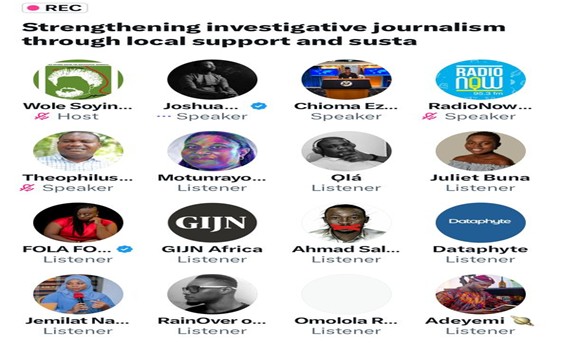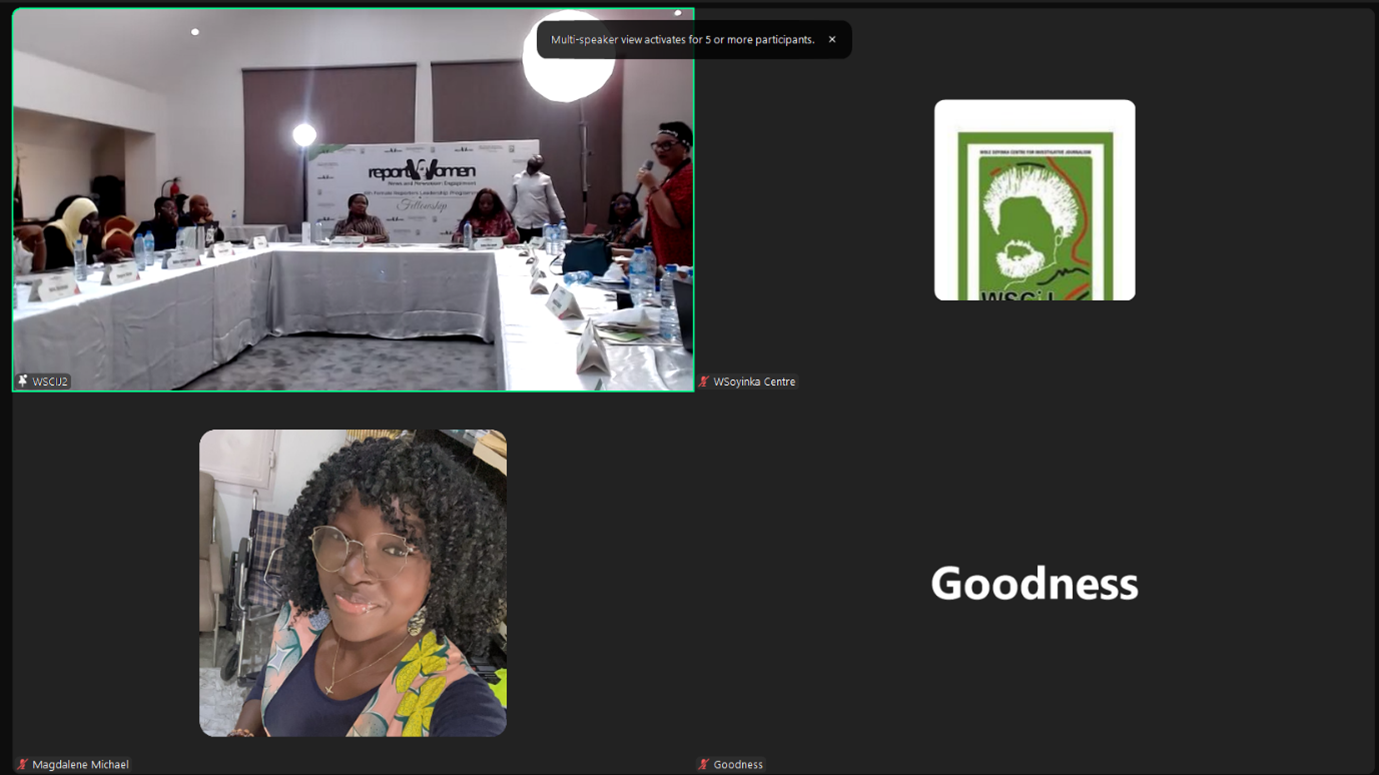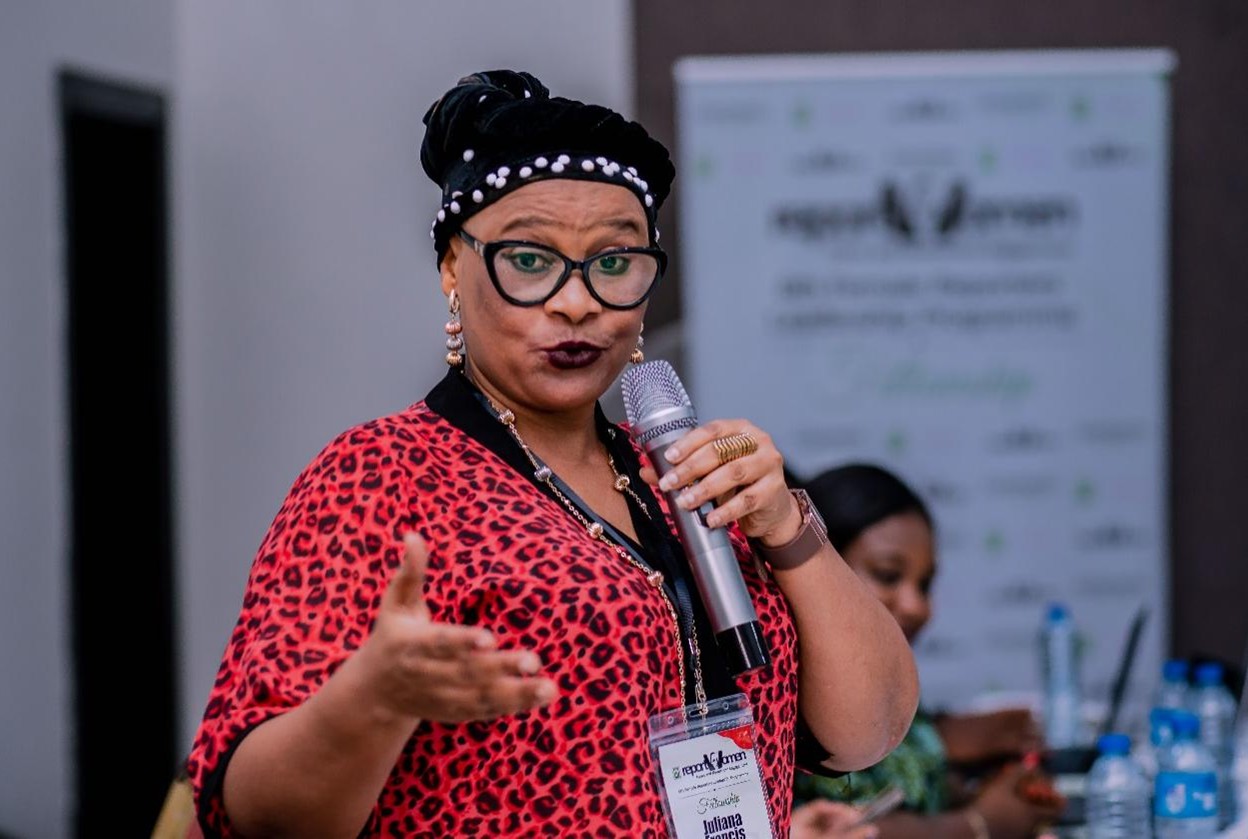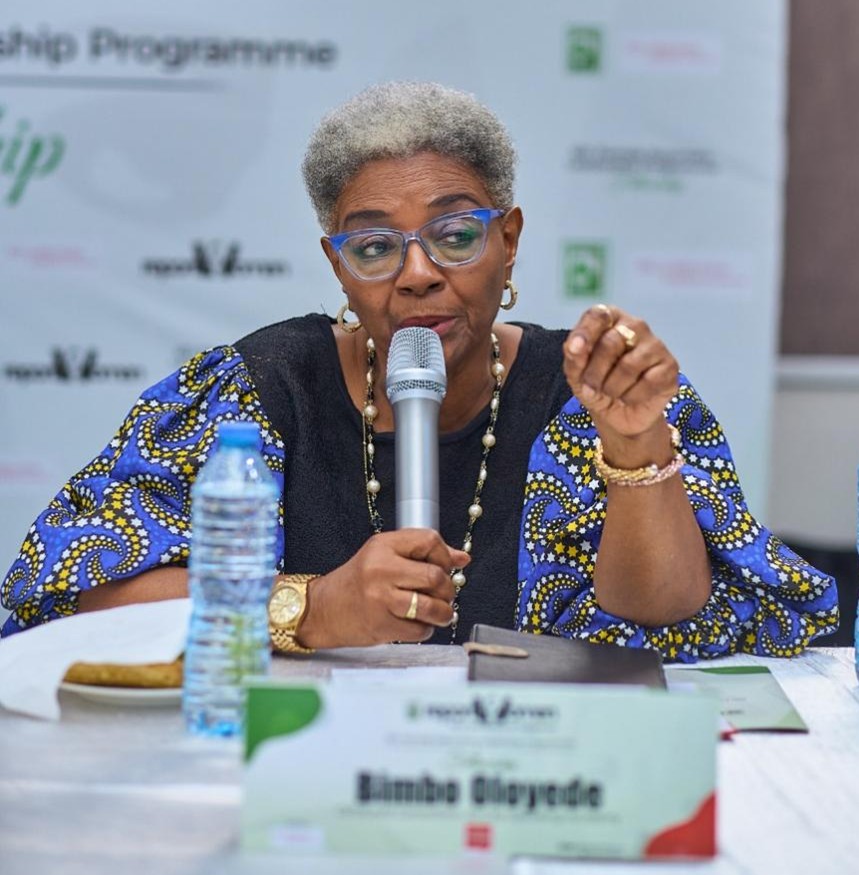The news media in Nigeria must rethink the way it tells stories and how it is funded to remain impactful and be sustainable. This was the call to action at the April edition of Journalism & Society Conversations hosted by the Wole Soyinka Centre for Investigative Journalism (WSCIJ) on Tuesday, 15 April 2025 with theme, “Strengthening Investigative Journalism through Local Support and Sustainable Models.”
Moderated by Chioma Ezenwafor, News Manager, NigeriaInfo FM, Port Harcourt, the conversation featured seasoned media professionals including, Theophilus Abbah, Programmes Director, Daily Trust Foundation; Kadaria Ahmed, Chief Executive Officer, RadioNow 95.FM, represented by Nabilah Usman, Head of Programmes, Radio Now; and Joshua Olufemi, Founder, Dataphyte.
In her opening remarks, Motunrayo Alaka, Executive Director/CEO, WSCIJ, highlighted the urgency of strengthening investigative journalism through local support and sustainable models. She noted that power dynamics exist beyond government – in homes, schools, and workplaces – and journalists must be bold enough to confront all forms of authorities and serve as tools for justice, reform and equity. Alaka said, “We must move from journalism that is distant to journalism that is close to the people.” She highlighted that the WSCIJ, through various platforms and collaboration with media organisations, has consistently championed investigative journalism and continues to explore new avenues to strengthen its impact.
Abbah raised concerns about the future of investigative journalism in Nigeria as donor funding declines. According to him, investigative reporting is expensive. It demands evidence gathering, travel, tools and collaboration. He called for the reactivation of the national network for investigative journalism which he mentioned Motunrayo Alaka created many years ago as a platform to pool resources and attract support for investigative reporting. He proposed stronger partnerships and funding from philanthropists, as well as from institutions with complimentary roles to the media, like the Economic and Financial Crimes Commission (EFCC) and the Independent Corrupt Practices and Other Related Offences Commission (ICPC).
Lending her voice to the conversation, Usman who represented Kadaria Ahmed expressed concerns about how funding from anti-corruption agencies such as the EFCC and ICPC could impact the independence of investigative journalism. She drew a comparison with the British Broadcasting Corporation (BBC), which is publicly funded yet maintains editorial independence, noting that Nigeria’s democratic institutions lack the accountability needed for such a model to succeed here. She stressed that homegrown funding is prone to compromise in Nigeria.
On his part, Olufemi called for a shift from donor dependency to locally driven, sustainable models for investigative journalism. He emphasised the need for hyperlocal focus, targeting niche sectors like agriculture and education, while building ecosystems that promote innovation, revenue generation and audience engagement. Olufemi also highlighted the importance of audience-centred content. In his words, “People pay for information that serves their interests or helps them to improve their livelihood. This is one thing we need to begin to look at. Who are we serving, and how are we able to get those who can pay among them to pay?”.
Contributing to the conversation, Lekan Otufodunrin, Executive Director, Media Career Development Network, encouraged young journalists to get involved in national journalism bodies, like the Nigeria Union of Journalists (NUJ) and the Nigerian Guild of Editors. He explained that by joining these groups, they can have a say in the future of journalism and contribute to improving the way investigative reporting is done.
The Journalism & Society Conversations by WSCIJ brings together stakeholders to discuss pressing issues such as press freedom, regulatory frameworks and the vital role of investigative journalism in holding the government accountable and contributing to nation-building.








